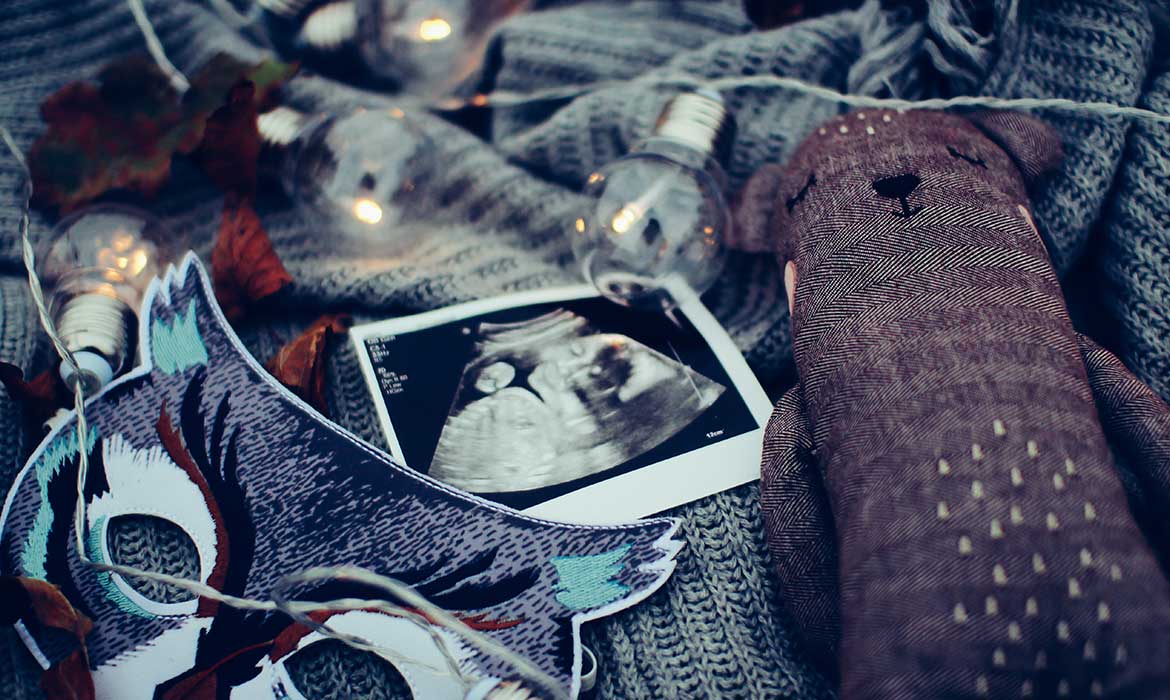Some women are able to birth a house full of kids without a single death, while others face the trauma of recurrent losses. One thing that hurt was that although many people sent cards the first time I miscarried, only one or two did the second time. It made me feel like they thought, “Oh well, you’re used to it.”
Joel Samuel and Hannah Rose were our second and third known miscarriages, our ninth and tenth losses when including the grief of our unsuccessful adoption attempts. A few weeks after Hannah’s death, I came home to find a gourmet fruit basket sitting on my doorstep with a simple note of sincere sympathy. The friend who sent this gift realized that my children mattered and my grief was real. Their lives were being fully validated, just as if they had been born, lived outside the womb, and been buried. I will forever cherish the sweet taste of those beautiful pears.

One out of every 115 babies in the United States is stillborn. This is about twenty-five thousand children every year who are carried past twenty weeks of pregnancy (the generally accepted landmark that separates “miscarriage” from “stillbirth”), only to be born dead. The cause of stillbirth can be determined in less than half of all cases, adding to the questions, fears, and grief families must process.
While most women are able to give live birth to a subsequent child, about 3 percent of women who have suffered one stillbirth will know this anguish more than once. When my friend Christie gave birth to Noah, her firstborn, no cries met her ears. A little more than four years later, after the joyful births of two daughters, Christie and Glen were again faced with the news, “I’m sorry; we cannot find a heartbeat,” at twenty weeks.

In an effort to find something to say, people have tried to console Christie with such irrational statements as “Now you don’t have to worry about the inconvenience of being up nights with a crying baby.” Christie’s reply is “I have sleepless nights anyway, only I’m the one crying.” To those who strive to comfort with “At least you didn’t get to know him,” she grieves, “That’s one of the most painful parts about this. I don’t even have memories to cherish.”
The week Simon should have been due, Christie reflected,
It would be crazy and busy and exhausting. . . . I want that so much! I want labor and giving birth. I want breastfeeding and being up half the night. It was so hard to lose Noah, to have empty arms and an empty house. I felt so left out. I wondered if we would ever have children. Simon’s death is hard in different ways. I know exactly what I am missing. I don’t have time to grieve and I don’t have the emotional energy to parent, so I do neither very well.

A friend recently pointed out to me that when Lazarus died, Jesus, knowing He was only moments away from bringing His friend back to life, still wept. Yes, God swallowed up death in victory at the cross, but there is a legitimate time and need to express all the anguish you feel over the person missing in your life. Grief is a part of God’s design for human emotions. Popular Bible study author Beth Moore writes, “God’s Word never said we were not to grieve our losses. It says we are not to grieve as those who have no hope (1 Thess. 4:13). Big difference.” As believers we always have hope in the One who created us in His image and has plans for us that we cannot even comprehend.
Christians sometimes have a funny idea about sorrow being unspiritual. We often expect grieving hearts to heal quickly, without allowing for the many stages of the grief process. Pam writes, “Our Savior was ‘a man of sorrows and acquainted with grief’ (Isaiah 53:3). I wonder if He came to one of our churches now like that, if someone wouldn’t try and cheer Him up and tell Him to ‘let it go and open himself to the joy of Lord,’ then give Him a book and tape series to that effect?”

In the Old Testament, a person in grief tore his robe and didn’t run out to Kohl’s to get a new one to go to church. Women cut their hair. Men shaved their beards. There was weeping and wailing. For a whole year, nobody expected you to look or be the way you were. How wonderful! But in our nutty society, the person who “keeps it together,” who’s “so brave,” and who “looks so great — you’d never know,” that’s who is applauded.
Grief is not the opposite of faith. Mourning is not the opposite of hope. I believe that well-meaning Christians can try to hurry us out of our mourning because we make them uncomfortable. The Bible does not say to cheer up the bereaved, but rather to “mourn with those who mourn.” Christ does not say we grieve because we are deficient in faith, but rather, “Blessed are those who mourn, for they will be comforted [not rushed]” (Matthew 5:4).

Here’s how you can love and support well the people in your life who are experiencing the pain of pregnancy and infant loss:
We need to talk about our children . . . sometimes. How we miss them, how we remember them, how unfair life was to them. How they had our toes, fingers, mouths. How wrong it is that a mother cradles her child while taking her off life support. How wrong it is that someone else held our son as he died.
Sometimes we need to talk about how we feel. How guilty we feel for things we could never foresee, or fix. How we wonder if we made bad choices, or misunderstood God’s will for us. How unfair it is that so-and-so is pregnant again. How frustrating it is that we are treated delicately, like broken people. Or that we are spoken to insensitively, as if we should “be over it by now.” How, when we walk in a room, we feel everyone thinks of us as “the couple who lost their children.” How, when we walk in a room, no one knows or cares that we lost our children.

Sometimes we need to hear how you feel. We don’t need you to fix us, to be all-knowing, all-understanding. We want to hear your feelings about our children, but should just as often incorporate thoughts about your own lives. It’s comforting to hear about and participate in other people’s pain.
Always remember to whom you speak. Yes, this conflicts with the above need. Consider this: Your sense of joy from the accomplishments of your baby is a sting, not a comfort; and yet we do want to know how you and your young ones are faring. Your elation of pregnancy is a reminder of our loss; and yet we do want to know about and be involved in your pregnancy. Invite us to showers, just don’t be surprised if we politely decline. Your frustration toward caring for your children falls on the wrong ears with us; still we want to be there to help out. If we can do something constructive, we would love to, just don’t use us to vent frustration. Our lives do not revolve around the care and welfare of our children, so when we drop out of a roundtable discussion on the topic or politely move on to something different, don’t be surprised.

We need not to talk about our children . . . sometimes. This world, as cruel as it can be, is a place of wonder and excitement, meant for our enjoyment. We need to be reminded of that. We need to laugh and to make new memories. We cannot too often dwell on the past, not so as to erase it, but rather to augment our lives with a salting of the good in this world, those of great import or little consequence.
Above all, we still need time. We continue to hold onto hope and take active steps to bring additional children into our lives. The thoughts and process consume more than anyone knows. Yet we may or may not choose to discuss our pursuit. The pressure of achieving success is increased with each person we engage on the topic. We need more time to heal, to feel normal, to discover what God’s plan for us is. Asking for time from friends and family may be a self-centered thing, but it’s what we need. Don’t take our quietude, seclusion, or self-centered set of expectations personally. We just need time.
 From Hannah’s Hope by Jennifer Saake
From Hannah’s Hope by Jennifer Saake
Hannah was a common woman with a simple dream. She wasn’t expecting God to do anything big with her life; she just longed for motherhood and took her grief to the only One who could meet her needs. As she learned to worship God in the interludes of life, she began to reap the fruit of her years of heartbreak in a closer relationship with her Father. What would she have thought if someone had told her that God would choose to record her life and desires for all generations to come?
Hannah’s Hope is intended as a guide to assist you in making wise decisions as you struggle through your grief of not yet conceiving, losing a child, or struggling through the adoption process.




